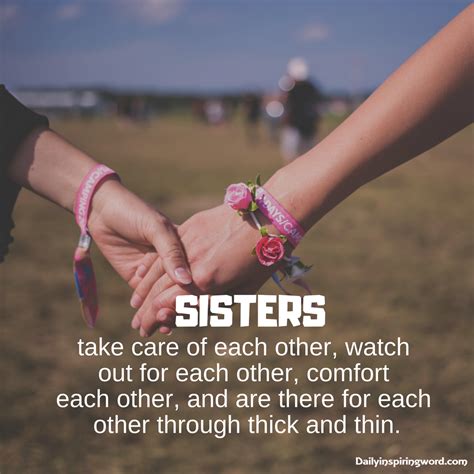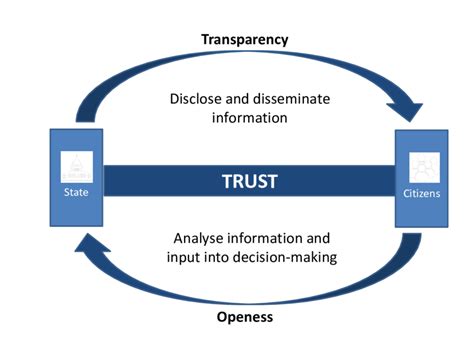
A teenager revealed her older sister feigned a headache and missed her college graduation ceremony, ditching the momentous occasion to meet TikTok star Bryce Hall.
The incident, which has ignited debate across social media platforms, unfolded after the graduate, identified only as “Lily,” allegedly confided in her younger sister about her true intentions, leading to a mix of amusement and disapproval online. According to the younger sister’s viral TikTok video, Lily prioritized meeting the social media celebrity over celebrating her academic achievements with her family.
The controversy centers on the perceived disrespect towards the graduate’s family and the significance of a college graduation, juxtaposed with the allure of meeting an internet celebrity. The younger sister, whose video has amassed millions of views, presented screenshots of text messages as evidence, further fueling the online discussion. The situation raises questions about priorities, family relationships, and the influence of social media culture on young adults.
The Graduation Deception
The narrative unfolded when the younger sister noticed discrepancies in Lily’s behavior leading up to the graduation. Lily had initially expressed enthusiasm about the ceremony and the post-graduation celebrations planned by the family. However, on the morning of the event, she complained of a severe headache and announced she would be unable to attend, much to the disappointment of her parents and relatives who had traveled to witness her milestone achievement.
“She told my parents and me that she had a really bad headache and couldn’t make it,” the younger sister explained in her TikTok video. “Everyone was super bummed, especially my parents who had been looking forward to this day for years.”
As the graduation ceremony commenced, the younger sister couldn’t shake off a sense of unease. She found Lily’s sudden illness suspicious and decided to investigate further. The discovery that followed revealed the elaborate plan Lily had concocted.
Unveiling the Truth: The Bryce Hall Connection
Driven by suspicion, the younger sister covertly checked Lily’s phone while she was purportedly resting. There, she uncovered a series of text messages that revealed Lily’s true agenda: she was skipping her graduation to meet Bryce Hall, a prominent figure on TikTok known for his online presence and various controversies.
The text messages, presented as evidence in the TikTok video, detailed Lily’s meticulous planning to rendezvous with Hall. She had arranged transportation, coordinated with friends who were also fans of the TikTok star, and even secured a potential meeting spot. The messages indicated that Lily viewed the opportunity to meet Hall as more valuable than her graduation ceremony.
“I found texts on her phone saying she was ditching graduation to meet Bryce Hall,” the younger sister revealed. “I couldn’t believe it. She had lied to all of us and missed her own graduation for a TikTok star.”
The revelation sparked outrage among family members, particularly Lily’s parents, who felt betrayed and deeply hurt by her actions. The younger sister’s TikTok video quickly went viral, attracting a wave of comments and reactions from users who were both shocked and amused by the situation.
Social Media Frenzy and Divided Opinions
The TikTok video ignited a social media firestorm, with users expressing a wide range of opinions on Lily’s actions. Some criticized her for prioritizing a celebrity encounter over her family and academic achievements, while others defended her right to make her own choices, arguing that graduation ceremonies are not as significant as personal experiences.
Many users pointed out the disrespect Lily showed towards her family, who had invested time, money, and emotional support in her education. They argued that her graduation was not just a personal achievement but a celebration of her family’s sacrifices and encouragement.
“Your parents worked so hard to get you where you are, and you skip your graduation to meet a TikTok star? That’s just disrespectful,” one user commented on the TikTok video.
However, some users took a more lenient stance, suggesting that Lily was simply pursuing her interests and that her decision should be respected. They argued that graduation ceremonies are often overrated and that personal experiences, such as meeting a celebrity, can be more meaningful.
“It’s her life, and she can do what she wants. Maybe meeting Bryce Hall is more important to her than walking across a stage,” another user commented.
The debate highlights the growing influence of social media culture on young adults and the changing values associated with traditional milestones. In an era where online fame and celebrity encounters are highly coveted, some argue that the significance of academic achievements and family celebrations is diminishing.
Family Fallout and Repercussions
The fallout from Lily’s actions has had a significant impact on her relationship with her family. Her parents are reportedly deeply disappointed and struggling to understand her motivations. The younger sister, who exposed the truth, is facing a complex mix of emotions, including guilt, anger, and a desire to restore harmony within the family.
The incident has also raised questions about trust and communication within the family. Lily’s decision to deceive her parents and sister suggests a breakdown in open dialogue and a lack of respect for their feelings. Rebuilding trust will require honest conversations, empathy, and a willingness to understand each other’s perspectives.
As of now, Lily has remained largely silent about the controversy, avoiding direct engagement with the online backlash. However, sources close to the family indicate that she is aware of the impact her actions have had and is grappling with the consequences.
Bryce Hall’s Involvement and Response
Bryce Hall, the TikTok star at the center of the controversy, has not directly addressed the situation publicly. His representatives have declined to comment on the matter, citing his busy schedule and commitment to his online content creation.
Hall’s silence has further fueled the debate, with some users criticizing him for not acknowledging the situation or addressing the impact his influence has on his fans. Others argue that he is not responsible for Lily’s actions and should not be drawn into the controversy.
The incident raises broader questions about the responsibility of social media influencers and their impact on their followers’ behavior. While influencers are not directly responsible for the choices made by their fans, their actions and statements can have a significant influence on their values and priorities.
The Broader Context: Social Media Influence and Priorities
Lily’s story reflects a growing trend among young adults who prioritize social media fame and celebrity encounters over traditional milestones and family values. The allure of online recognition and the perceived benefits of associating with influencers can be powerful motivators, leading some individuals to make questionable choices.
The rise of social media has created a culture of instant gratification and a constant desire for validation. Young people are bombarded with images of glamorous lifestyles and success stories, often leading them to believe that online fame is the key to happiness and fulfillment.
In this context, it is important to encourage critical thinking and promote a balanced perspective on the role of social media in our lives. Young people need to understand that online fame is not a substitute for genuine relationships, academic achievements, and personal growth.
Moving Forward: Lessons Learned and Reconciliation
The incident involving Lily and her family serves as a cautionary tale about the potential pitfalls of social media obsession and the importance of maintaining strong family bonds. As Lily navigates the aftermath of her actions, she has an opportunity to learn from her mistakes and rebuild trust with her loved ones.
For her family, the challenge lies in understanding Lily’s motivations, fostering open communication, and setting clear boundaries for future behavior. Reconciliation will require empathy, forgiveness, and a willingness to move forward together.
The story also highlights the need for greater awareness of the influence of social media on young adults and the importance of promoting healthy values and priorities. Parents, educators, and community leaders must work together to equip young people with the critical thinking skills and emotional intelligence needed to navigate the complexities of the digital age.
The situation continues to evolve, but the core issue remains: the clash between traditional values and the allure of social media fame, and the impact this has on family relationships. As the debate continues, it serves as a reminder of the importance of staying grounded, prioritizing meaningful connections, and recognizing the true value of academic achievements and family support.
In-Depth Analysis: The Psychology Behind the Decision
To understand Lily’s decision to skip her graduation, it’s important to delve into the potential psychological factors at play. Several cognitive and emotional biases might have influenced her thinking:
-
Availability Heuristic: This bias involves overestimating the importance of information that is readily available. In Lily’s case, the constant exposure to Bryce Hall’s content and the perceived opportunities associated with meeting him might have made that option seem more appealing and significant than the more abstract idea of a graduation ceremony.
-
Confirmation Bias: If Lily already held a strong positive opinion of Bryce Hall, she might have selectively sought out information that confirmed her belief and dismissed information that contradicted it. This could have led her to downplay the importance of her graduation and exaggerate the potential benefits of meeting the TikTok star.
-
Social Comparison Theory: This theory suggests that individuals evaluate their own worth by comparing themselves to others. Lily might have felt pressure to achieve a certain level of social status or recognition, and she might have seen meeting Bryce Hall as a way to elevate her own perceived status.
-
Fear of Missing Out (FOMO): The fear of missing out on a potentially exciting or valuable experience can be a powerful motivator, especially for young adults who are constantly exposed to curated versions of other people’s lives on social media. Lily might have felt that she couldn’t pass up the opportunity to meet Bryce Hall, even if it meant sacrificing her graduation.
-
Impulsivity: Some individuals are more prone to making impulsive decisions, especially when faced with immediate gratification. Lily might have acted impulsively without fully considering the consequences of her actions.
The Role of Family Dynamics
Family dynamics also play a crucial role in understanding Lily’s behavior. Potential contributing factors include:
-
Communication Breakdown: If Lily felt that she couldn’t openly communicate her desires and priorities with her family, she might have resorted to deception. A lack of trust or fear of judgment could have prevented her from sharing her true feelings.
-
Pressure to Conform: If Lily felt pressured to conform to her family’s expectations, she might have rebelled against those expectations by making a controversial decision. The graduation ceremony might have represented a symbol of conformity, and Lily might have wanted to assert her independence.
-
Sibling Rivalry: Although not explicitly stated, the younger sister’s decision to expose Lily’s secret could be seen as a form of sibling rivalry. The younger sister might have felt that Lily was receiving undue attention or that she was not appreciating the sacrifices her family had made.
Ethical Considerations: The Younger Sister’s Dilemma
The younger sister’s decision to reveal Lily’s secret raises ethical questions about privacy, loyalty, and the potential consequences of her actions. While she might have felt justified in exposing Lily’s deception, she also had a responsibility to protect her sister’s privacy and consider the potential harm her actions could cause.
Some ethical frameworks that could be applied to this situation include:
-
Utilitarianism: This ethical theory suggests that the best action is the one that maximizes overall happiness and minimizes overall suffering. In this case, the younger sister might have argued that exposing Lily’s deception would ultimately lead to more happiness for the family, even if it caused temporary pain.
-
Deontology: This ethical theory emphasizes the importance of following moral rules and duties, regardless of the consequences. In this case, the younger sister might have argued that she had a duty to be honest with her family, even if it meant betraying her sister’s confidence.
-
Virtue Ethics: This ethical theory focuses on developing virtuous character traits, such as honesty, compassion, and loyalty. In this case, the younger sister’s actions could be evaluated based on whether they reflected virtuous behavior.
The Long-Term Implications for Lily’s Future
Lily’s decision to skip her graduation could have long-term implications for her future, both personally and professionally. Some potential consequences include:
-
Damaged Family Relationships: Rebuilding trust with her family will require significant effort and commitment. The damage to their relationship could affect her emotional well-being and her ability to rely on her family for support in the future.
-
Reputational Damage: The viral nature of the TikTok video could have a lasting impact on Lily’s reputation. Potential employers or acquaintances might view her as irresponsible or unreliable.
-
Missed Opportunities: The graduation ceremony represented an opportunity to celebrate her academic achievements and connect with potential mentors or employers. By skipping the event, she might have missed out on valuable networking opportunities.
-
Psychological Impact: The online backlash and the strained relationship with her family could lead to feelings of guilt, shame, or anxiety. It’s important for Lily to seek support from mental health professionals if she is struggling to cope with the situation.
Frequently Asked Questions (FAQ)
-
Why did Lily skip her graduation ceremony? Lily allegedly skipped her college graduation ceremony to meet TikTok star Bryce Hall, according to her younger sister’s viral TikTok video. She reportedly faked a headache as an excuse to her family.
-
How did Lily’s family find out the truth? Lily’s younger sister grew suspicious of her sudden illness and checked her phone, where she found text messages detailing Lily’s plans to meet Bryce Hall instead of attending the graduation.
-
What was the reaction to the TikTok video? The video sparked a social media debate, with some users criticizing Lily for disrespecting her family and academic achievements, while others defended her right to make her own choices.
-
Has Bryce Hall responded to the situation? As of now, Bryce Hall has not publicly commented on the situation. His representatives have declined to comment, citing his busy schedule.
-
What are the potential consequences of Lily’s actions? The potential consequences include damaged family relationships, reputational damage, missed networking opportunities, and potential psychological distress due to the online backlash and family strain.
-
What does this situation say about the influence of social media? This incident underscores the strong pull social media and influencer culture can have on young adults, sometimes leading them to prioritize online experiences over significant life events and family obligations. It highlights the need for critical thinking and a balanced perspective when navigating social media’s influence.
-
How can families prevent similar situations from happening? Open communication, understanding each other’s values, and establishing mutual respect are crucial. Parents can help their children develop a healthy relationship with social media by encouraging critical thinking and emphasizing the importance of real-life achievements and relationships.
-
What is the ethical dilemma faced by the younger sister? The younger sister faced the ethical dilemma of choosing between loyalty to her sister and honesty towards her family. She had to weigh the potential harm of revealing Lily’s secret against the perceived obligation to disclose the truth.
-
What are some psychological factors that may have influenced Lily’s decision? Psychological factors might include the availability heuristic (overemphasizing readily available information), confirmation bias (seeking information that confirms existing beliefs), social comparison theory (comparing oneself to others), fear of missing out (FOMO), and impulsivity.
-
What can Lily do to repair her relationship with her family? Lily can start by apologizing sincerely and acknowledging the hurt she caused. She should then communicate openly with her family about her motivations and demonstrate a commitment to rebuilding trust through consistent and respectful behavior. Seeking family counseling could also be beneficial.
This expanded article provides a comprehensive analysis of the situation, delving into the psychological and ethical dimensions, and exploring the broader societal context of social media influence. It also offers practical advice for families and individuals navigating similar challenges. The FAQ section provides quick answers to common questions about the incident.









